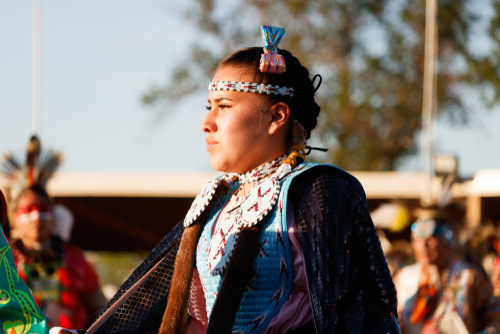
For years, Tribal members and advocates have been trying to draw attention to what they call a crisis of missing and murdered Indigenous women and girls, and now, U.S. Sens. Catherine Cortez Masto (D-NV) and John Hoeven (R-ND) have introduced legislation that takes it as a focus.
In the Bridging Agency Data Gaps & Ensuring Safety (BADGES) for Native Communities Act (BADGES), new resources would go to the Bureau of Indian Affairs for law enforcement recruitment and retention, increased efficacy of federal missing persons resources and to counter the growing numbers of missing and murdered. Tribal access to the National Missing and Unidentified Persons System (NamUS) would be increased, the Bureau would gain the ability to conduct its own background checks for recruitment and a program would be created to support the coordination of efforts related to missing and murdered persons cases and sexual assault cases.
The latter, in particular, would benefit not just the Tribes but also extend efforts by and coordination with states. Accountability would also be emphasized as a new report on Tribal law enforcement needs and a frank evaluation of federal law enforcement evidence collection, handling, and processing critical to convicting violent offenders are included among the bill’s provisions. Further, officers of the Bureau and Tribal police would gain access to culturally appropriate mental health and wellness programs.
“I’m doing all I can to ensure that Tribal law enforcement agencies have what they need to serve their communities, recruit and train officers, and bring perpetrators to justice,” Cortez Masto said. “My bill will give Tribal law enforcement access to more federal resources and improve coordination across agencies, strengthening public safety and protecting Native families.”
According to a 2016 report by the Department of Justice, 86 percent of rapes and sexual assaults against Native American women are committed by non-Native American men. Further, Native Americans are reportedly 2.5 times more likely to experience violent crimes and at least two times more likely to face rape or sexual assault than any other group. When it comes to murder, Native American women face murder rates that can top more than 10 times the national average, such that in 2017, the Centers for Disease Control and Prevention (CDC) labeled homicide the sixth leading cause of death for these women between the ages of 1 and 44 years old.
Likewise, in 2018, the National Congress of American Indians determined that about four of every five native women have experienced violence. While some inroads were made over the years through the Violence Against Women Act, the bill was not reauthorized in 2019 when a Republican majority in the Senate opted not to take up the measure.




